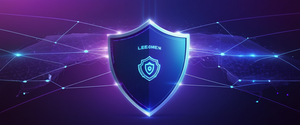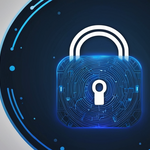
Virtual Private Networks have become increasingly prominent in discussions about online security and privacy, yet the decision of whether to use one remains nuanced and highly dependent on individual circumstances, technical needs, and risk profiles. While nearly two-thirds of VPN users highlight privacy protection and enhanced general online security as their top concerns, the actual landscape of VPN adoption tells a more complex story, with usage declining from 46% of Americans in 2024 to 32% in 2025, suggesting that despite growing awareness of digital threats, many individuals remain uncertain about whether these tools are necessary for their particular situation. This comprehensive analysis examines the multifaceted question of VPN usage by exploring what VPNs fundamentally accomplish, the scenarios in which they provide genuine benefits, their significant limitations and risks, and the broader context of modern internet security to help readers make informed decisions about their own digital safety strategies.
Understanding Virtual Private Networks and Their Core Function
A Virtual Private Network, commonly referred to as a VPN, is a technology that creates a secure, encrypted connection between a user’s device and the internet by routing traffic through remote servers operated by the VPN provider. The fundamental mechanism involves encrypting data before it leaves a user’s device, routing that encrypted data through a VPN server typically located in a different geographic location, and then forwarding it to its final destination on the internet, while also receiving responses that travel back through the same secure tunnel. This process serves two primary functions: it masks the user’s real Internet Protocol address by replacing it with the IP address of the VPN server, and it encrypts the data transmission so that the content remains unreadable to potential interceptors. It is crucial to understand that a VPN’s primary purpose is providing privacy on the internet rather than comprehensive security in the traditional sense, a distinction that many users fail to recognize when evaluating whether they should adopt this technology.
The encryption process itself deserves closer examination, as it is central to understanding what a VPN can and cannot accomplish. When a user connects to a VPN service, their internet traffic is encrypted using strong cryptographic algorithms, most commonly AES-256 encryption, which uses a 256-bit key and is regarded as military-grade encryption that would theoretically require billions of years to crack using brute force methods. The traffic flows through an encrypted tunnel from the user’s device to the VPN server, where it is decrypted and forwarded to the destination website or service, with responses following the same encrypted path back to the user. However, it is important to note that once data exits the VPN server en route to its final destination, it is no longer protected by the VPN’s encryption, a phenomenon sometimes called the “exit node fallacy,” which means that if a user is accessing an unsecured HTTP website through a VPN, the data between the VPN server and that website remains unencrypted and potentially vulnerable to interception. This fundamental limitation reveals why VPNs should not be considered a complete security solution but rather a specialized privacy tool with specific applications and boundaries.
For practical protection, see our VPN protection feature.
Current Landscape of VPN Adoption and Consumer Attitudes in 2025
Understanding whether you should use a VPN requires context about how the market has evolved and what current users are actually using these services for. The VPN market has experienced significant changes in recent years, with adoption rates fluctuating rather than continuing on an upward trajectory. Approximately 32% of American adults currently use a VPN, representing a substantial decline from 46% in 2024 and 39% in 2022, which suggests that despite widespread awareness of cybersecurity threats, consumer confidence in or perceived necessity of VPNs may be wavering. This downward trend does not necessarily indicate that VPNs are becoming less valuable; rather, it reflects a maturing market where different user segments have different needs and where misconceptions about VPN capabilities may be leading some users to abandon services they initially adopted. Among active VPN users, the most common motivations remain remarkably consistent, with 60% of users citing general privacy protection, 57% citing general security, 37% citing protection on public Wi-Fi networks, 32% seeking to prevent tracking by search engines or social media, and 25% using VPNs for more secure online shopping transactions. Notably, usage as a job requirement has dropped significantly from 39% in 2023 to just 25% in 2025, reflecting perhaps both changes in remote work policies and the availability of corporate VPN alternatives.
Demographic patterns in VPN adoption reveal that younger users, particularly those aged 18-29, demonstrate the highest adoption rates at nearly 40%, while older demographic groups show lower utilization rates. The most popular VPN brands in the United States market are NordVPN, used by 17% of VPN users, followed by Proton VPN and ExpressVPN as the next most prominent options. However, a concerning trend exists in the VPN market: despite security warnings about free VPN services, approximately 28% of American VPN users still rely on free VPN options, which often come with significant privacy and security drawbacks. This gap between what users choose and what cybersecurity experts recommend highlights the importance of understanding the substantive differences between free and paid services, a distinction that will be explored in greater depth later in this analysis.
Specific Scenarios Where VPN Usage is Genuinely Beneficial
To make an informed decision about whether to use a VPN, it is essential to identify concrete situations where these services provide clear, demonstrable value. The most compelling use case for VPN adoption involves using public Wi-Fi networks in locations such as airports, coffee shops, hotels, and other open hotspots where network security cannot be guaranteed. Public Wi-Fi networks are inherently insecure because they lack encryption, meaning that any data transmitted over these networks can be intercepted by malicious actors using basic network analysis tools known as packet sniffers. When connected to public Wi-Fi without a VPN, information such as login credentials, email communications, financial data, and other sensitive information can be easily captured by someone with the technical knowledge and tools to monitor network traffic. A VPN encrypts all traffic on public Wi-Fi networks, rendering such interception attempts futile because the intercepted data appears as encrypted gibberish rather than readable information. This protection extends to all types of online activity conducted over public networks, including accessing banking applications, conducting sensitive work communications, shopping online, and accessing personal email accounts, all of which involve transmitting information that should not be exposed to network snooping.
Another significant scenario where VPNs provide value involves protecting against ISP monitoring and data collection practices. Internet Service Providers can monitor the websites their customers visit, the duration of visits, and in many cases the specific content accessed, collecting this data for purposes ranging from network management to selling browsing histories to advertisers and data brokers. A VPN prevents ISPs from viewing which specific websites users visit by encrypting all internet traffic and routing it through a VPN server, meaning that ISPs can only see that a user is connected to a VPN server and not the specific destinations of internet traffic. For users concerned about behavioral tracking and profiling by corporations and advertisers, this protection represents a meaningful privacy benefit, particularly given that ISPs are legally permitted in many jurisdictions to collect and monetize customer browsing data. Additionally, a VPN can help users bypass ISP throttling, the practice of intentionally slowing internet speeds for specific types of traffic such as streaming or file downloads; because a VPN encrypts traffic, ISPs cannot identify what type of content a user is accessing and therefore cannot selectively throttle specific applications or services.
Remote work scenarios represent another important context where VPN usage should be seriously considered. When employees access company networks from outside the office, particularly from public Wi-Fi networks or other untrusted connections, a VPN creates an encrypted tunnel to the corporate network that prevents interception of sensitive company data, proprietary information, financial reports, and internal communications. This is particularly important in regulated industries such as healthcare, finance, and law, where failure to protect sensitive information can result in legal liability, compliance violations, and substantial financial penalties. Many organizations mandate VPN usage for remote workers specifically because the security and compliance risks of unencrypted remote access to sensitive systems are unacceptable. Even for individual users who work remotely but do not have access to a corporate VPN, using a personal VPN can add a layer of protection against interception of login credentials and other sensitive information when working from unfamiliar networks.
Accessing geo-restricted content represents a common use case for VPNs, though this application exists in a legal gray area that deserves careful consideration. Streaming platforms, news websites, banking services, and other online content providers often restrict access based on geographic location due to licensing agreements, broadcast rights, or regulatory requirements. A VPN allows users to appear to be in a different geographic location by connecting to a VPN server in that location, thereby enabling access to content that would otherwise be restricted. While most countries do not have laws explicitly prohibiting VPN use for accessing geo-restricted content, most streaming platforms consider this a violation of their terms of service, though enforcement typically involves merely asking users to disconnect rather than imposing penalties. Users should be aware that while the technology enables content access, actually implementing this use case may violate platform terms of service, and users should make informed decisions based on their own ethical considerations.
In countries with significant internet censorship and surveillance, VPNs can serve a crucial function in enabling access to information and facilitating private communication. In restrictive countries like China, Russia, Turkey, and various Middle Eastern nations, VPNs can help circumvent censorship systems that block access to certain websites and services. For journalists, activists, and individuals in these environments who need to access information and communicate privately, VPN technology may provide essential protection, though usage patterns are changing as governments increasingly develop techniques to detect and block VPN traffic. This represents perhaps the most ethically defensible use case for VPN technology, as it enables fundamental freedoms in restrictive environments, though even in these scenarios, users should understand that VPNs provide privacy but not absolute anonymity or complete protection against determined state-level surveillance capabilities.

Significant Limitations and Security Risks of VPN Usage
Despite the legitimate use cases identified above, it is critical to understand that VPNs have substantial limitations and introduce their own security risks that many casual users do not recognize. One of the most important misconceptions to address is that a VPN is fundamentally different from a comprehensive security solution; a VPN primarily addresses privacy concerns related to network-level observation, but it does not protect users from many common cybersecurity threats. Specifically, a VPN cannot protect users from malware infections, phishing attacks, ransomware, or viruses, because these threats typically involve user behavior or compromised websites rather than network-level interception. If a user clicks on a malicious link, downloads an infected file, or falls victim to a social engineering attack, a VPN provides no protection whatsoever against these threats. This distinction is critical because it means that maintaining a VPN connection creates a false sense of security that can lead users to take dangerous risks such as visiting suspicious websites, downloading files from untrusted sources, or engaging in risky online behavior under the mistaken belief that a VPN provides comprehensive protection.
Another frequently overlooked limitation involves the scope of what a VPN actually encrypts and protects. While VPN encryption secures traffic between a user’s device and the VPN server, and also protects traffic from the user’s device to websites accessed through the VPN, it does not necessarily protect the user from being identified or tracked on those websites. Websites can still collect information about users through mechanisms such as cookies, browser fingerprinting, and tracking pixels, and a VPN does nothing to prevent this type of tracking behavior. Additionally, if a user logs into a website using their real name or personal account information while connected to a VPN, the website knows who they are regardless of the IP address appearing to come from the VPN server. This means that a VPN provides anonymity from ISPs and network operators but not necessarily from the websites and services users actually visit, which represent some of the primary entities interested in collecting behavioral data for advertising and profiling purposes.
Protect Your Digital Life with Activate Security
Get 14 powerful security tools in one comprehensive suite. VPN, antivirus, password manager, dark web monitoring, and more.
Get Protected NowThe issue of data logging and privacy policies represents another critical limitation that users must carefully evaluate. While reputable VPN providers maintain strict no-logs policies, meaning they do not retain records of user browsing activity, IP addresses accessed, or connection timestamps, not all VPN services adhere to this standard. Some VPN providers, particularly many free options, explicitly retain usage logs and sell or share this data with advertisers, marketing companies, and potentially government agencies. Even some providers that claim to offer no-logs policies may retain certain information such as payment details, email addresses used for registration, and connection times for billing and system administration purposes. The challenge for users is that privacy policies are often written in obscure language, and independent verification of claims about data retention practices is limited. Free VPN services are particularly problematic in this regard, as they must generate revenue somehow, and when users are not paying for the service, the revenue model typically involves monetizing user data through collection and sale to third parties.
DNS leaks represent a specific technical vulnerability where a VPN fails to properly encrypt DNS requests, exposing which websites a user visits to their ISP or other network observers despite the user believing they are connected to an encrypted VPN tunnel. DNS leaks can occur due to improper VPN configuration, software bugs, incompatible operating system settings, or browser extensions that bypass VPN protection. Testing for DNS leaks requires using specialized online testing tools, and users who discover leaks have limited remediation options that vary depending on their operating system and VPN provider. Similarly, WebRTC leaks can expose a user’s real IP address even when connected to a VPN, particularly in browsers like Chrome that implement WebRTC technology for real-time communication applications. These technical vulnerabilities highlight that a VPN is only effective when properly configured and maintained, and that technical knowledge or careful attention to configuration is necessary to ensure that the protection actually functions as intended.
From an organizational perspective, VPNs introduce additional security concerns when used for remote access to business networks. Because VPNs traditionally grant either full access to a network or no access, with limited granular control over which specific resources users can access, a compromised VPN account effectively grants attackers access to an entire corporate network. This “all or nothing” access model means that if an attacker gains a VPN user’s credentials, they potentially have broad access to sensitive systems, and the lack of granular audit logging makes it difficult to determine exactly what an attacker accessed or compromised. The historical record demonstrates this vulnerability, as major data breaches at companies including Home Depot and Target exploited VPN access to gain entry into corporate networks. These organizational vulnerabilities have led many companies to move toward zero-trust network access models that provide more granular access controls and continuous verification of user identity and device health rather than relying on traditional VPN-based perimeter security.
The Distinction Between Free and Paid VPN Services
The decision to use a VPN is intimately connected to the decision of which type of VPN service to use, and the distinction between free and paid options deserves thorough examination because the trade-offs are substantial. Free VPN services are universally beset by serious limitations compared to their paid counterparts, beginning with infrastructure constraints that translate directly into user experience degradation and security risks. Free VPN providers operate with limited server networks, typically offering between 1 and 50 servers compared to the 1,000 to 6,000+ servers provided by established paid services. This scarcity of server capacity means that free VPN users typically experience significantly slower connection speeds due to server overload and congestion, which can render activities such as streaming video or file downloading practically unusable. Beyond speed concerns, free VPN services frequently lack advanced security features that paid services provide as standard, including kill switches that automatically disconnect internet access if the VPN connection drops, leak protection features that prevent DNS and WebRTC leaks, split tunneling that allows selective VPN routing for certain applications, and support for modern secure protocols such as WireGuard.
The business model of free VPN services raises profound concerns about user privacy and data security that ultimately undermine the primary purpose of using a VPN in the first place. Because users are not paying for the service, VPN providers must generate revenue through alternative means, and the most common approach involves collecting and selling user browsing data to advertisers, analytics companies, and other third parties. Research has documented that free VPN services consistently request excessive permissions, include multiple tracking and advertising technologies, and maintain privacy policies that explicitly permit data collection and monetization practices. Perhaps even more concerning, some free VPN services have been discovered to contain malware or to distribute malicious software through their applications, turning users seeking privacy protection into victims of the very threats they hoped to mitigate. The maxim that “if you’re not paying for the product, you are the product” particularly applies to free VPN services, and users should approach these offerings with significant skepticism.
Paid VPN services, by contrast, generate revenue directly from subscription fees, which aligns the business incentive with user privacy protection. Quality paid VPN providers implement strong encryption standards including AES-256 encryption with appropriate key lengths, support modern secure protocols such as WireGuard and IKEv2/IPSec that provide better speed and security than older protocols, include security features such as kill switches and leak protection by default, maintain rigorous no-logs policies that have been independently audited by third-party security firms, and operate transparent privacy policies that detail exactly what information is collected and how it is used. Leading paid VPN services such as NordVPN, Surfshark, and ProtonVPN have invested in infrastructure with thousands of servers distributed globally, implement advanced technologies such as VPN Accelerator or MultiHop features that enhance both speed and privacy, and maintain customer support teams that can assist users with configuration and troubleshooting. The price differential between free and paid services, typically ranging from $3 to $12 per month depending on subscription length and provider, represents a relatively modest investment compared to the potential value of privacy protection and the serious risks associated with using free services that monetize user data.
The research on VPN usage patterns reveals that while many users are drawn to free options for cost reasons, the general population expresses greater skepticism about the safety of free VPNs and tends to feel safest using institutional VPNs provided by employers or educational institutions. This pattern suggests that users recognize, at least intuitively, that free services carry greater risks than alternative options, though cost considerations may still drive adoption of free services despite these concerns. For anyone seriously considering VPN adoption, the strong recommendation from cybersecurity professionals is to select a paid service from an established, reputable provider with a documented track record of respecting user privacy and maintaining strong security practices.
Examining the Modern Technological Context and HTTPS Encryption
To properly evaluate whether you need a VPN, it is important to understand how the broader internet security landscape has evolved, particularly regarding HTTPS encryption adoption and its implications for VPN necessity. The internet has undergone a substantial transformation in encryption adoption over the past decade, with an estimated 85% of websites now using HTTPS, the secure version of HTTP, compared to the much smaller percentage of encrypted sites that existed when VPN services first became widely available to consumers. HTTPS uses Transport Layer Security (TLS) encryption to protect data transmitted between a user’s browser and a website, which means that the content of communications with websites is encrypted and protected from interception by ISPs, network operators, or other parties attempting to monitor internet traffic. For routine browsing activities involving HTTPS websites such as banking, shopping, email, and social media, the encryption provided by HTTPS may provide sufficient protection without requiring an additional VPN.
However, HTTPS encryption has important limitations that a VPN addresses differently, and understanding these distinctions is crucial for informed decision-making. HTTPS only encrypts the content of communications between a browser and website; it does not encrypt the fact that a user is visiting that website, which means that ISPs and network observers can still see which websites users visit even when HTTPS is in use. Additionally, HTTPS only protects browser traffic, not traffic from other applications such as email clients, messaging applications, file transfer programs, or other services that may transmit sensitive information over the internet. Furthermore, many websites and services still do not use HTTPS, and unencrypted HTTP traffic remains vulnerable to interception even as HTTPS adoption has increased. For these reasons, security experts argue that HTTPS encryption and a VPN serve complementary functions rather than being redundant, and users concerned about privacy from ISPs and network operators should ideally use both technologies together rather than viewing them as alternatives.
The evolution of DNS encryption represents another important aspect of the changing internet security landscape. Historically, DNS requests that translate website names into IP addresses were transmitted in plaintext, which meant that ISPs could easily see which websites users were attempting to visit by observing these requests. However, DNS-over-HTTPS (DoH) and DNS-over-TLS (DoT) protocols now provide encryption for DNS requests, protecting this metadata from ISP observation without requiring a VPN. Modern browsers increasingly default to encrypted DNS services, which reduces one of the traditional privacy benefits that VPNs provided by hiding DNS queries from ISPs. These developments suggest that the case for VPN usage based on protection against ISP monitoring has shifted somewhat, though VPNs still provide this protection and may be preferable to some users compared to relying on browser-based DNS encryption or third-party DNS services.

VPN Protocols, Encryption Standards, and Performance Considerations
For users who decide that a VPN is appropriate for their needs, understanding the technical options available is important for selecting a service that provides adequate security and acceptable performance. VPN services employ various tunneling protocols that differ in their security properties, performance characteristics, compatibility with different devices, and susceptibility to blocking by network operators. OpenVPN is one of the most widely supported and recommended protocols, offering a good balance between security, speed, and cross-platform compatibility by using SSL/TLS for encryption and key exchange, though its reliance on user-mode encryption rather than kernel-level implementation means it may not be as fast as some alternatives. IKEv2/IPSec represents the standardized Internet Key Exchange protocol paired with IPSec for encryption, and it is particularly well-suited for mobile devices because it handles reconnection and network switching gracefully, though it is somewhat more complex to configure and can be easier for networks to block due to its reliance on fixed protocols and ports. WireGuard is a newer protocol that has gained significant popularity due to its simplicity, modern cryptographic approaches, and superior performance; it uses state-of-the-art cryptographic primitives including ChaCha20 for symmetric encryption and Curve25519 for key exchange, and benchmarks demonstrate that WireGuard provides approximately 57% faster speeds than OpenVPN while maintaining strong security properties.
Encryption standards used by VPN services are another critical technical consideration, with AES-256 representing the nearly universal standard among quality VPN providers. AES-256 encryption with a 256-bit key is regarded as military-grade encryption that would theoretically require billions of years to crack using conventional brute-force cryptographic attacks, and it is used by government agencies, military organizations, and financial institutions to protect highly sensitive information. Reputable VPN providers implement AES-256 with appropriate authentication methods, typically using SHA256 or SHA384 authentication depending on the specific protocol, and forward secrecy that ensures that if an encryption key is compromised, past communications remain protected. These encryption standards have been thoroughly vetted by the cryptographic community and represent the current state of the art in protecting data confidentiality.
VPN connection speed and performance represent practical considerations that significantly impact user experience and the viability of VPN usage for different purposes. VPNs inherently introduce some latency and bandwidth overhead compared to unencrypted internet connections because data must be encrypted and routed through additional servers, and the routing distance from a user to the VPN server directly impacts connection speed. However, this speed impact is typically minimal with quality VPN services, with studies showing that top-tier providers introduce less than 5-6% speed reduction on average when connecting to nearby servers, and the impact is often imperceptible for typical browsing activities. For bandwidth-intensive activities such as video streaming or large file downloads, connection to a distant VPN server can introduce more noticeable slowdowns, though selecting a nearby server typically eliminates this issue. Interestingly, under specific circumstances, a VPN can actually increase effective speeds for particular services; if an ISP is actively throttling certain types of traffic such as streaming or peer-to-peer applications, a VPN can bypass this throttling by encrypting traffic so that the ISP cannot identify which services are being used, potentially resulting in faster speeds for previously throttled activities.
Legal Status and Regulatory Landscape for VPN Usage
The legality of VPN usage varies substantially by geographic location, and potential users should understand the regulatory landscape in their jurisdiction before adopting VPN services. In most countries, including the United States, Canada, the United Kingdom, Australia, and Japan, VPNs are entirely legal for private use, and individuals may freely choose to use VPN services without legal risk. However, a handful of countries have implemented bans or severe restrictions on VPN usage, typically driven by desire to suppress dissent and maintain government surveillance capabilities. Countries with complete or near-complete bans on VPN usage include North Korea, which prohibits VPN use and monitors internet access severely, Turkmenistan, which banned VPNs in 2015 as part of broader restrictions on internet freedoms, Belarus, which banned VPNs in 2015 and also blocks the Tor network, and Turkmenistan with similar restrictions. In several other countries, VPN usage is technically legal but restricted to government-approved services, including China, which prohibits unauthorized VPN usage and has imposed fines of up to $2,200, the United Arab Emirates, which only permits government-approved VPNs and imposes fines of $41,000 to $136,000 for unauthorized usage, and Russia, where only government-approved VPNs are permitted following restrictive legislation passed in July 2025.
These legal restrictions are not static, and the regulatory landscape is evolving in some jurisdictions. Myanmar implemented new restrictions on unauthorized VPN installation in January 2025 that carry potential penalties including six months imprisonment or fines up to $4,750, representing one of the newest and most severe VPN restrictions. Turkey has implemented repeated blocks on VPN providers and the Tor network since 2016, with further restrictions occurring in 2023, and March 2025 saw a dramatic spike in VPN usage coinciding with political protests and social media crackdowns. Russia has reportedly disrupted internet connections and tested its “sovereign internet” infrastructure, with VPNs appearing unable to bypass these blocks in certain regions, suggesting that the cat-and-mouse game between VPN providers and governments attempting to block them continues to evolve.
For users traveling to countries with VPN restrictions, the typical recommendation is to sign up and install the VPN before arriving in the country, because many foreign VPN websites are blocked and VPN apps are not available through local app stores in these jurisdictions. For users residing in countries with significant restrictions on VPNs, some VPN providers offer obfuscation features that disguise VPN traffic as regular internet traffic to avoid detection and blocking, though there are no guarantees that these features will remain effective given the ongoing technological evolution of government blocking capabilities.
Vulnerabilities, False Sense of Security, and Complementary Protection Strategies
One of the most important warnings that cybersecurity professionals emphasize regarding VPNs is that these tools can create a false sense of security that leads users to take risks they would not otherwise take. This psychological phenomenon occurs because users may believe that a VPN connection provides comprehensive protection against all online threats, when in reality VPNs address only a specific subset of security concerns related to network-level privacy and encryption. A user who believes their VPN provides complete protection might visit suspicious websites, download files from untrustworthy sources, ignore software updates, use weak passwords, fall victim to phishing attacks, or engage in other risky behaviors under the mistaken belief that the VPN will protect them. In reality, the VPN provides no protection whatsoever against malware, phishing, ransomware, weak passwords, unpatched software vulnerabilities, or user error, meaning that comprehensive security requires a multilayered approach that goes far beyond VPN usage.
Effective online security requires integrating VPN usage with complementary protective measures that address the full spectrum of digital threats. These complementary measures should include antivirus and anti-malware software that detects and removes malicious code, email filtering and spam protection to reduce phishing and malicious attachment risks, security software that prevents exploitation of software vulnerabilities, multi-factor authentication that protects accounts even if passwords are compromised, regular software updates that patch known vulnerabilities, strong password practices using unique passwords for important accounts, and educated user behavior that recognizes and avoids common social engineering and phishing attempts. Additionally, individuals should understand what specific threats they actually face based on their own threat model, personal circumstances, and online habits, because the appropriate level of security investment and the relevant protection measures vary significantly depending on individual risk profiles.

Practical Recommendations for Decision-Making
Based on the comprehensive analysis above, recommendations for whether to use a VPN should be personalized based on individual circumstances, threat model, technical sophistication, and specific use cases. For individuals who frequently use public Wi-Fi networks such as travelers, remote workers, or people who work from coffee shops and other public locations, VPN usage is strongly recommended as a practical and effective way to protect against interception of sensitive information on inherently insecure networks. This category of users would benefit significantly from a quality paid VPN service that provides reliable connections, fast speeds to avoid disrupting work, kill switch protection to prevent accidental unencrypted transmission, and robust customer support for troubleshooting.
For individuals concerned about ISP monitoring and data collection, particularly those who value privacy from corporations and who are uncomfortable with ISPs collecting and selling browsing data, a VPN provides meaningful protection by preventing ISPs from seeing which websites users visit and preventing ISP-based throttling of specific services. Users in this category should select a VPN provider with a documented no-logs policy, independent security audits of their infrastructure, and jurisdiction in a country with strong privacy laws. However, users should understand that a VPN addresses only the ISP dimension of privacy and does not protect against tracking by websites, advertisers, and other entities through cookies, tracking pixels, and behavioral profiling.
Remote workers accessing company networks should follow their organization’s security policies regarding VPN usage; if their employer mandates VPN usage for remote access, this requirement should be followed strictly. If remote work involves accessing sensitive company information but the employer does not mandate VPN usage, using a personal VPN adds a meaningful layer of protection against interception of login credentials and sensitive data, particularly when working from untrusted networks.
For individuals interested in bypassing geo-restrictions to access entertainment content, streaming-optimized VPN services with servers that reliably bypass platform detection are available, though users should be aware that this usage violates most streaming platforms’ terms of service and should make informed decisions based on their own ethical considerations regarding terms of service violations. The legal status of this usage is ambiguous in most countries, with no specific laws typically prohibiting it, but platforms may attempt to block access.
Individuals simply browsing the internet from home networks with strong encryption (HTTPS websites) and standard security practices may find that VPN usage provides more marginal value, particularly given the widespread adoption of HTTPS encryption that protects website content even without a VPN. However, even home users should consider using a VPN if they are concerned about ISP data collection, if they access sensitive services such as banking from home networks, or if they want to ensure protection in case of future changes to their internet setup or online habits.
For all categories of potential VPN users, the strong recommendation is to select a paid service from a reputable provider with transparent privacy policies, independent security audits, strong encryption standards, and quality customer support, rather than attempting to save money through free services that carry substantial privacy and security risks. The monthly cost of quality VPN services, typically $3-$12 per month depending on subscription length, represents a reasonable investment in privacy protection compared to the potential risks of data collection and the degraded user experience associated with free services.
Finding Your VPN Fit
The question of whether to use a VPN does not have a simple yes or no answer, but rather depends on understanding what VPNs actually accomplish, what specific scenarios they effectively address, what significant limitations and risks they introduce, and how they fit into a broader digital security strategy. VPNs are effective and valuable tools for specific purposes, particularly for protecting privacy on public Wi-Fi networks, preventing ISP monitoring and data collection, and enabling secure remote work access to company networks. For individuals who fall into these categories or who have other specific use cases aligned with VPN capabilities, the benefits of using a quality paid VPN service clearly justify the modest monthly cost.
However, VPNs are not comprehensive security solutions, cannot protect against malware, phishing, ransomware, or user error, and can create a dangerous false sense of security if users believe they provide complete protection. Effective online security requires understanding what specific threats are relevant to your particular situation, implementing a layered approach that includes antivirus protection, secure passwords, software updates, multi-factor authentication, and educated user behavior, and understanding that a VPN addresses only a specific subset of security concerns related to network privacy and encryption.
The declining adoption rate of VPN services from 46% to 32% in the past year suggests that after initial enthusiasm, many users have concluded that VPN services are not necessary for their particular circumstances, which may reflect either accurate assessment of limited personal need or potentially inadequate understanding of the privacy and security benefits these services provide. The decision to use a VPN should be made deliberately based on individual circumstances rather than defaulting to either complete adoption or complete rejection. For anyone who decides that a VPN is appropriate for their needs, the strong recommendation is to invest in a quality paid service from a reputable provider with strong privacy policies, robust encryption, advanced security features, and reliable customer support, because the modest monthly cost of these services is far outweighed by the privacy and security benefits they provide compared to the serious risks associated with free alternatives that monetize user data and provide inferior protection. The fundamental principle should be to understand your personal privacy concerns and threat model, select tools that specifically address those concerns, and maintain realistic expectations about what VPNs can and cannot accomplish within a broader strategy of responsible digital security practices.






